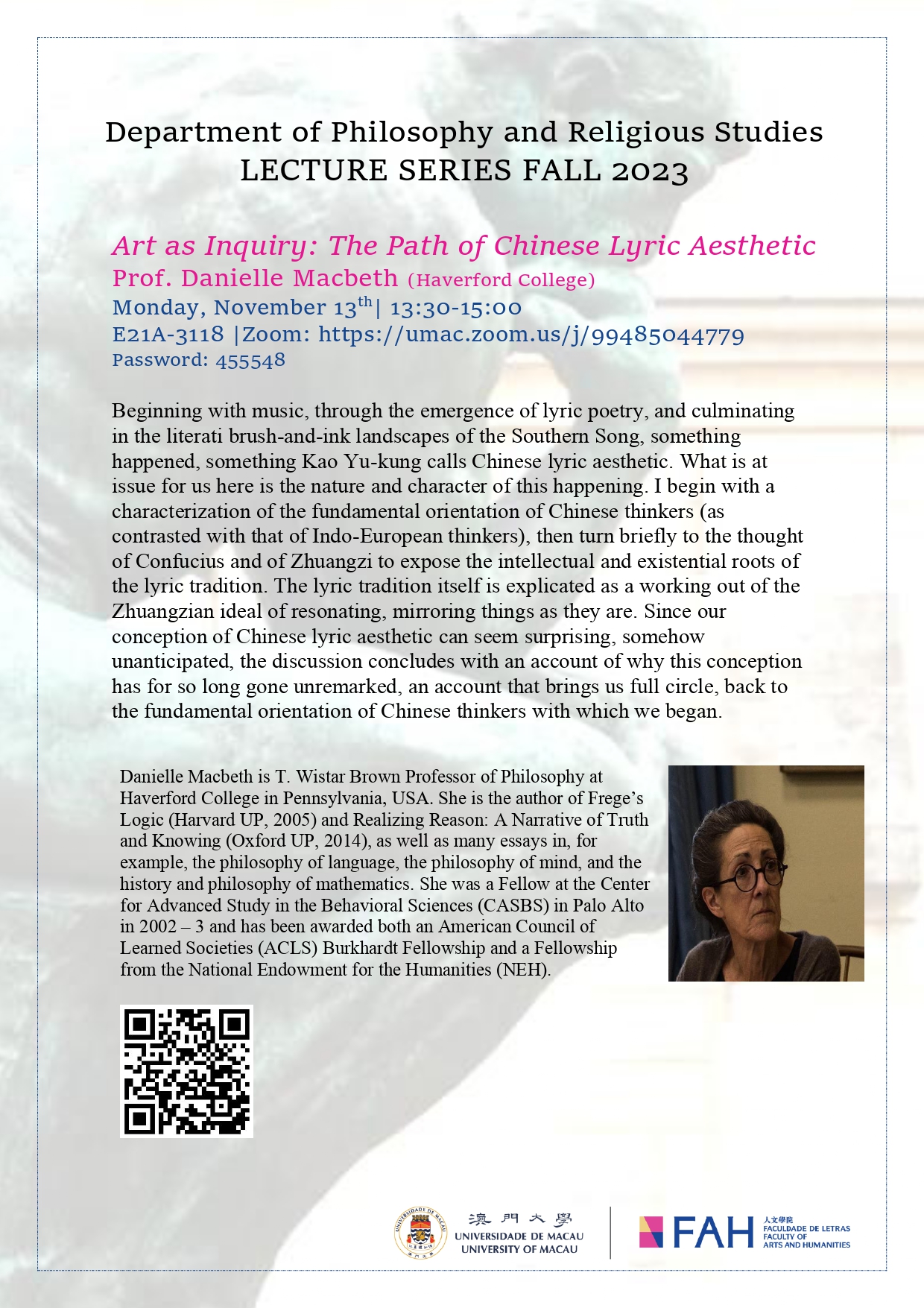

FAH/DPHIL Lecture Series – “Art as Inquiry: The Path of Chinese Lyric Aesthetic” by Prof. Danielle Macbeth, Haverford College, U.S.A.
2023-11-13 @ 1:30 pm ~ 3:00 pm
Zoom: https://umac.zoom.us/j/99485044779
Password: 455548
Abstract
Beginning with music, through the emergence of lyric poetry, and culminating in the literati brush-and-ink landscapes of the Southern Song, something happened, something Kao Yu-kung calls Chinese lyric aesthetic. What is at issue for us here is the nature and character of this happening. I begin with a characterization of the fundamental orientation of Chinese thinkers (as contrasted with that of Indo-European thinkers), then turn briefly to the thought of Confucius and of Zhuangzi to expose the intellectual and existential roots of the lyric tradition. The lyric tradition itself is explicated as a working out of the Zhuangzian ideal of resonating, mirroring things as they are. Since our conception of Chinese lyric aesthetic can seem surprising, somehow unanticipated, the discussion concludes with an account of why this conception has for so long gone unremarked, an account that brings us full circle, back to the fundamental orientation of Chinese thinkers with which we began.
Bio
Danielle Macbeth is T. Wistar Brown Professor of Philosophy at Haverford College in Pennsylvania, USA. She is the author of Frege’s Logic (Harvard UP, 2005) and Realizing Reason: A Narrative of Truth and Knowing (Oxford UP, 2014), as well as many essays in, for example, the philosophy of language, the philosophy of mind, and the history and philosophy of mathematics. She was a Fellow at the Center for Advanced Study in the Behavioral Sciences (CASBS) in Palo Alto in 2002-3 and has been awarded both an American Council of Learned Societies (ACLS) Burkhardt Fellowship and a Fellowship from the National Endowment for the Humanities (NEH).

